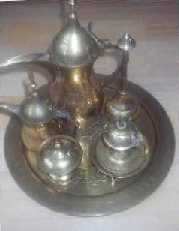
The Waswahili Community Trust UK
(Wadhamini wa jumuiya ya Waswahili)


|
The Waswahili Community Trust UK |
 |
To understand a people, one ought to look at that people's culture. To understand a people's culture, one ought first to understand their geography. They say that geography is the mother of history. In fact, geography is the mother of ecology. Ecology in turn is the mother of culture. No people live in an ecological vacuum.
People have to adapt to a given ecological environment. In doing this, they must first understand that environment. To understand that environment is to learn how a people can derive their most basic necessities from it. In the order of immediacy, these are the air they can breathe, water they can drink (and cook with) and food they can eat.
In the long term, they must also be able to balance days of plenty with days of scarcity. Scarcity is the weak link of the chain of life. If the days of scarcity far exceed what can be saved during the days of plenty, existence in a given ecological environment is seriously threatened. Migratory nomadism may be the only way to survive within that environment.
These and many other factors that constitute an ecological environment are what determine the way of life of a people. The way of life of a people is what is in popular lingo called CULTURE. That is why, in short, ecology and culture is so intimately connected. Indeed, that is why ecology is the mother of culture.
May be by looking at the ecology of the Swahili peoples, we would begin to understand why we have to look at these through a different set of anthropological glasses in order to see their place within the greater African ethnic mosaic.
Who are then are the Waswahili?
We appeal for your donation for our charity
Comments and suggestions to improve this website
Your suggestions or concerns about our services
Please send you contributions by filling a form.

Copyright© 2003: The Waswahili Community Trust (UK)
Registered Charity:1083065